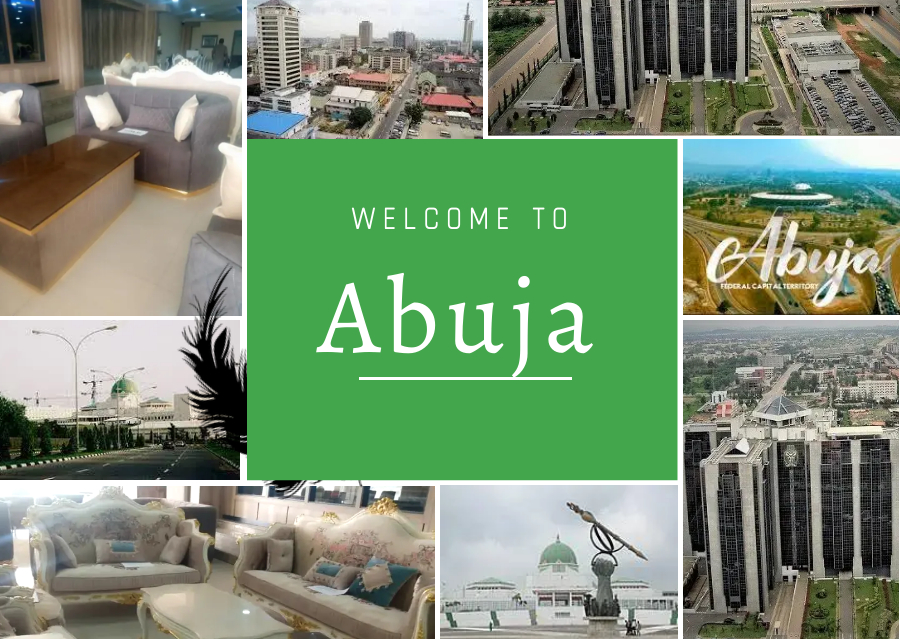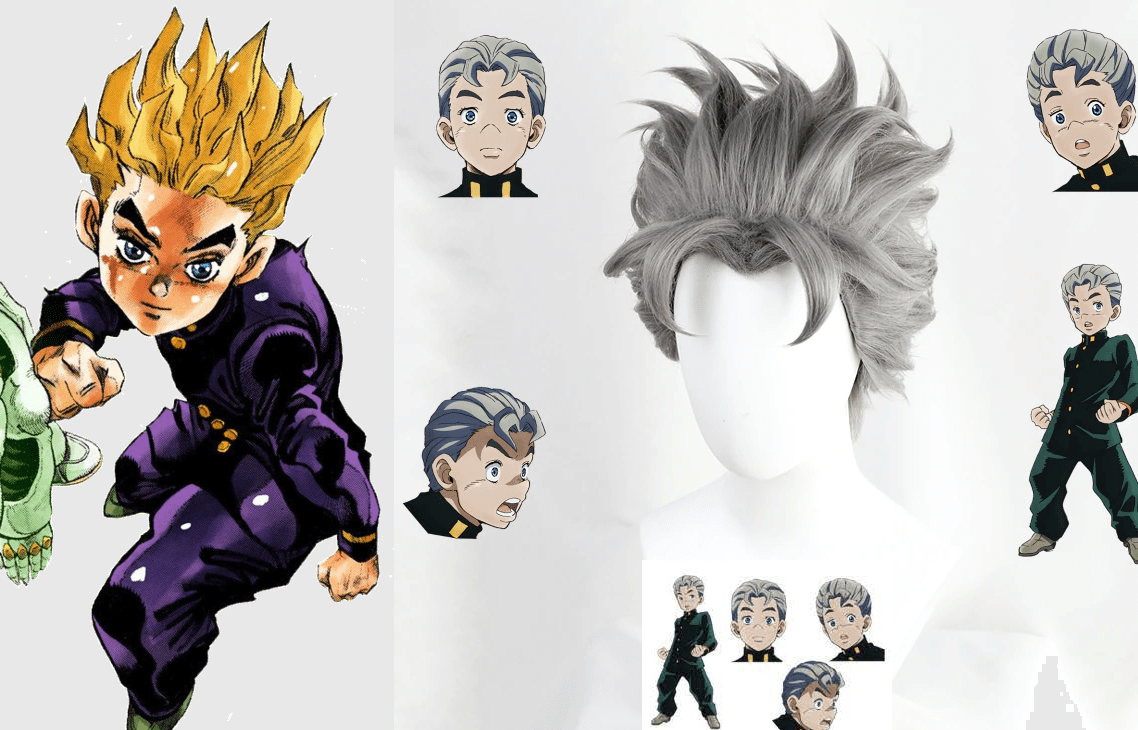As a blogger who works in the night, sleep a little in the morning and spend the rest of the day touring the FCT Abuja city for many years now, I have come to learn a lot about the capital of Nigeria, the local governments in Abuja, the Abuja City Gate & other places in Abuja worthy of note. Abuja City is the eight most populous city in Nigeria and it’s located at the center of the country.
Abuja is a planned City and was built around the 80s. It shares boundary with Niger state, Kaduna state, Nassarawa State and Kogi State. It officially became Nigeria capital on 12 December 1991 when it replaced Lagos as the capital city of Nigeria.
Abuja a city or a state?
Technically, it is wrong to call Abuja a state because it doesn’t have the structure of a typical Nigerian state. while a state is headed by a governor, Abuja is headed by a minister appointed by the presidency. And of course FCT Abuja is the seat of the presidency, and you will wonder who is in charge of fct administration. Well, the federal capital territory administration is by elected officials and the Federal government supervisors these officials.
How many local governments in Abuja?
There are currently six local governments in abuja, the federal capital of Nigeria FCT Abuja. These are not local government per SE, but area councils. They include:
- Abaji
- Abuja municipal
- Bwari
- Gwagwalada
- Kuje
- Kwali
The Cities in the City
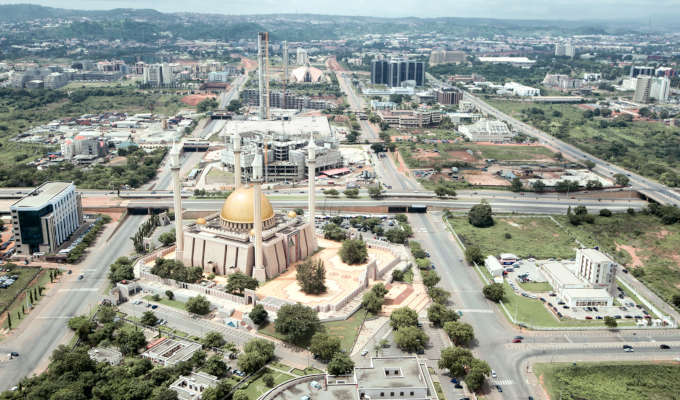
FCT Abuja itself is a city that have been divided into 3 developmental phases, where each phase is made up of 5 districts with the exception of phase 3 which has 4 districts.
FCT Abuja has five suburban districts that build up the list of Cities, with other nine satellite settlements. Now let’s look at each phase and how each district or arms zone is called.
Phase 1
This phase contains five districts which are;
- Asokoro District(Houses the Aso Rock of the presidential villa, the ECOWAS secretariat, all ministers lodge, as well as many diplomatic missions)
- Garki District(located in the southern part of the Abuja city)
- Maitama District(the northern part of the Abuja City. It is one of the most expensive residential areas in FCT Abuja and houses top politicians, senators, government leaders, and many Embassies)
- The Central District(the central area of Abuja which consists of both residential and commercial sectors)
- Wuse District(located in the northwestern part of FCT Abuja, and is divided into 7 different zones- Zone 1 – zone 7).
Phase 2
Phase 2 of the Abuja developmental plan contains 5 districts, which are;
- Durum District
- Gudu District
- Jabi District
- Kado District
- Utako District
Phrase 3
Phase 3 contains the following 4 districts;
- Gwarimpa District
- Katampe District
- Mabuchi District
- Wuye District
Suburban districts of FCT Abuja
The five suburban districts of the FCT include:
- Gwagwalada
- Jukwoyi.
- Karu
- Kubwa
- Nyanya, and
- A new district call Keymi, which covers the area around the Nnamdi Azikiwe International Airport terminal and the University of Abuja permanent campus.
Satellite Settlements
They are a number of satellite settlement areas that are part of FCT Abuja, they are:
- Lugbe,
- Chika,
- Kuchigworo
- Pyakassa.
- Idu (the main commercial zone),
- Mpape,
- Karimo,
- Gwagwa, and
- Dei-Dei (houses the International Building materials market of Abuja as well as the International Livestock market).
Abuja Population
According to reports from the United Nations, Abuja population grew by 139.7% between 2000 and 2010. This is an alarming spike in population growth, making FCT Abuja the fastest growing city in the world.
As of 2022, the city is experiencing an annual growth of at least 5.91%, which makes it one of the fastest-growing city on the African peninsula.
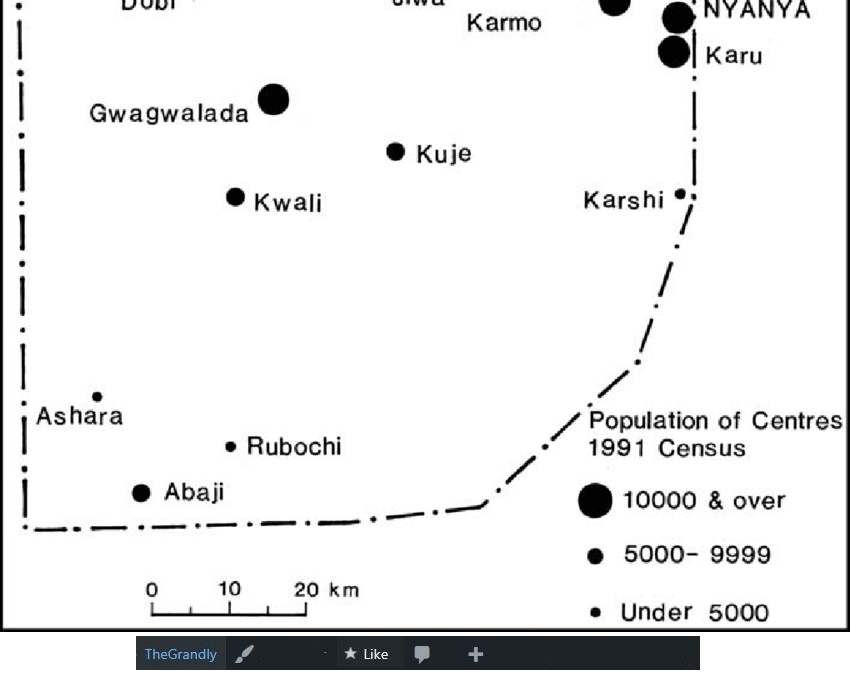
As of 2016, the metropolitan area of Abuja was estimated at six million persons, placing it behind only Lagos as the most populous metro area in Nigeria, but the current population count stand to fault this 2016 estimation.
Places in Abuja Worthy of Note
1. Abuja City Gate
Having beautiful gates to cities is as old as written history. Ancient days city gates are built for two major reasons:
- to identify the people and the beautiful craftsmanship
- to serve as a shield against invasion by enemies.
However modern wars are no longer fought with spears and swords and axes, thus, city gates are more of a sign of wealth beautification and craftsmanship.
The Abuja City gate is a monument located at the FCT Abuja. It was built to show or commensurate the shift of power from Lagos to Abuja. The purpose of the Abuja City Gate is to serve as a ceremonial icon or landmark.
Furthermore, the Abuja City gate has a symbolic meaning as it serves as a welcoming sign to all visitors to the city of Abuja. So, the whole idea of the Abuja City gate is for it to stand as a sign of unity among the Nigerian people. There is currently a decision to move the city gate 100 km from its current location.
The plan for the new city gate is to make it a tourist attraction sites, and I’m sure you are as eager as I am to see what it looks like.
2. Kubwa Abuja
Kubwa Abuja is a strategic suburb in the Federal Capital Territory FCT Nigeria. It is located to the north west of the City, and is administered by the Bwari Area Council, one of the 6 area councils or local governments in Abuja.
In recent times, there is an increasing population spike in the district, which has created demand for more goods and services. A combination of banks, shopping centers, markets and schools contribute to the daily commercial and social activities of Kubwa Abuja.
Kubwa Abuja is bordered by Dawaki, Gwarinpa and Katampe to the east, while Karsana sits to the south. Kubwa Abuja has been in existence since 1990 and is considered to be the largest satellite town in the whole of West Africa.
It is strategically positioned as a popular middle class neighborhood that easily links to the Central Business District. Kubwa Abuja is accessible through the Murtala Mohammed Expressway which links to the Abuja-Kaduna Highway in one direction and the city area in the other direction.
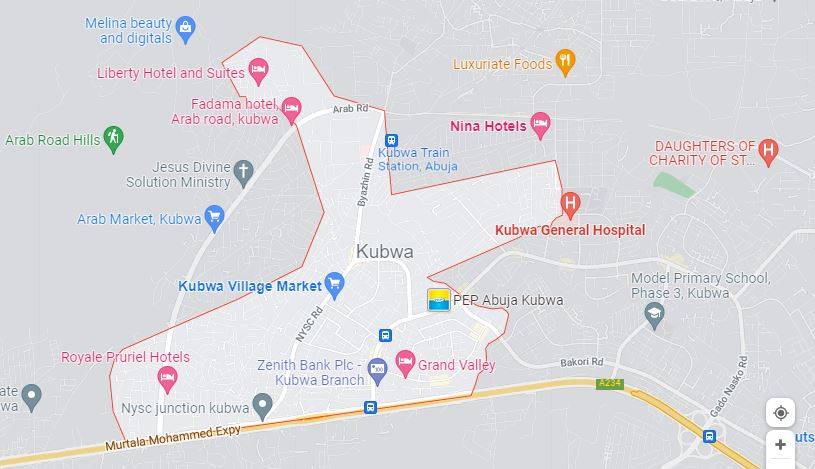
Places of interest in Kubwa Abuja include the National Youth Service Camp, train station, on the Abuja-Kaduna rail line.
Other places worthy of mention include:
- National Christian Centre
- Abuja National Mosque
- National Stadium
- Jabi lake
- The Supreme Court
- The National Children Center
Abuja City Pictures
the FCT Abuja city is one of the most beautiful cities in Nigeria with its beautiful roads that links you to its cities and suburban districts. Like other cities in West Africa, Abuja, is for the most part, safe and secure. Being the nation’s capital, security is not toyed with here, and the crime rate can be considered relatively low.
Abuja city picture paints one that is beautiful in the sense that it is an urban area, a planned city, and one of the few in the world that is built from scratch, using an architectural master plan.
